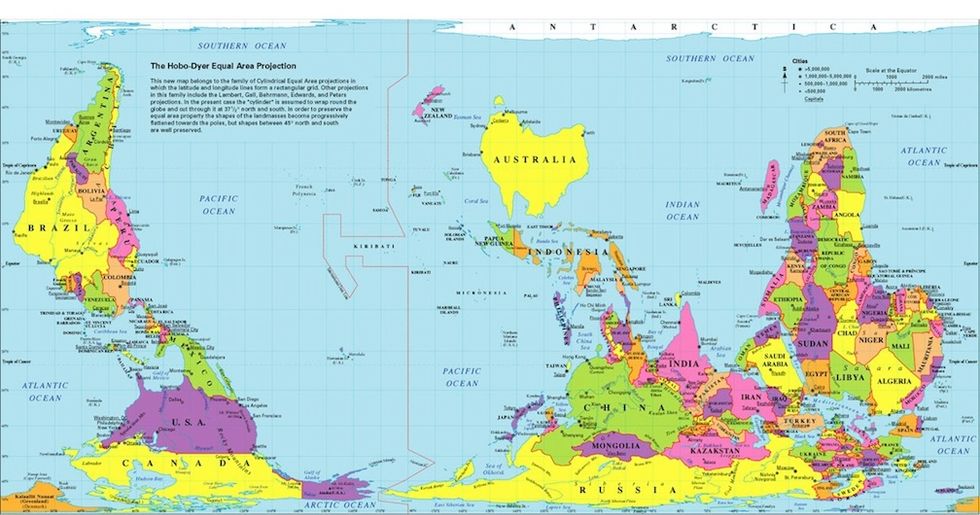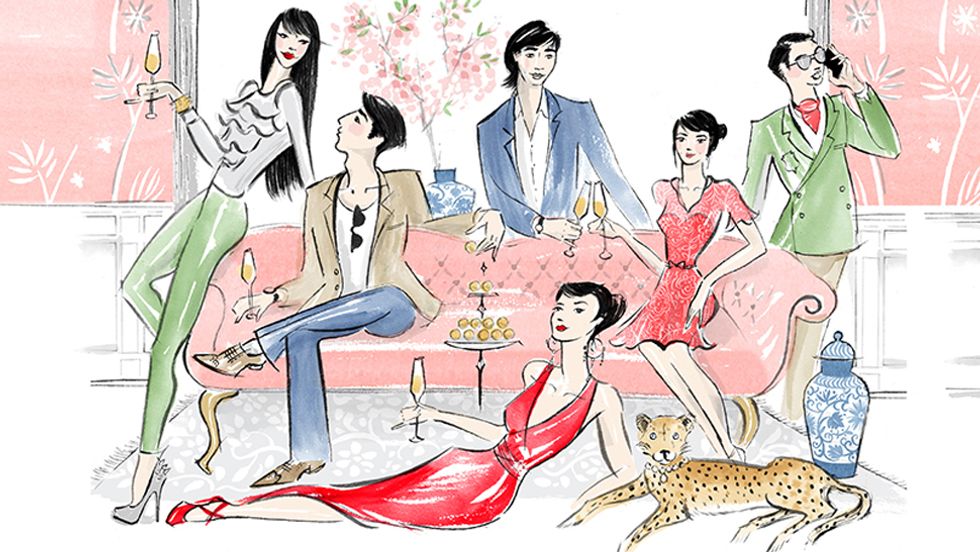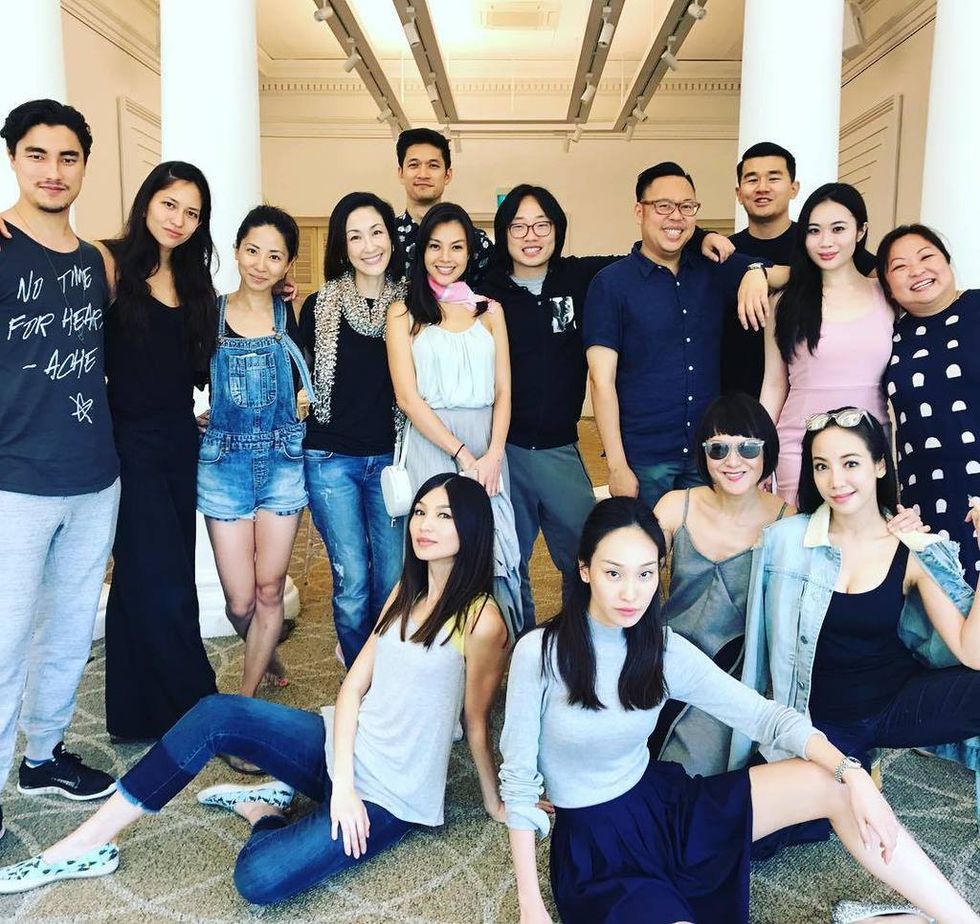Why the widespread success of "Crazy Rich Asians" by Kevin Kwan pushed me to re-culturize myself.
Before Kevin Kwan's astounding series premiered in 2013, the only mainstream success I would witness occurring with Malaysians or Singaporeans mostly only stayed in Malaysia or Singapore. One doesn't hear much about these nations, and from that experience, as a child, I believed that my country was unimportant.
What baffles me about this book series is its unapologetic nature. Kevin Kwan didn't just write this book about Asians for everyone else, he wrote it for us. His eloquent use of Hokkien and Malay, all tied up nicely with our local ways of speaking. He spared no -lahs in the making of this book. And it incited a pride in me that I had never felt before for my mother tongue.
English is generally what I tell most people is my first language, I am a native speaker and I believe I can speak it quite well. In reality, my true mother tongue should be Hokkien or Teow Chew, the dialects that my parents speak. My unwillingness to accept or even learn them stemmed from my perceived value of them. How I spoke was the way the people on TV spoke. And growing up, I always glowed when people complimented me on my more or less absent accent. This contributed to my gradual decline in my Chinese and Bahasa Melayu speaking abilities. Something that I'm trying to play catch-up with now.
Kwan is a brave artist. And unlike many other authors, he didn't try to cater this book to the large audiences - Americans or even Mainland Chinese (well... maybe the second book did) because they wouldn't quite get it! Sure, there are some loose translations in the footnotes, but one must be from the region to understand the subtext and the real meanings behind these Hokkien phrases. I truly believe that Kwan wrote this book for himself, and for the Singaporeans and Malaysians who have never really seen their culture become mainstream (unless they lose a plane, ahem, and run a Ponzi scheme including Leo DiCaprio!).
The series expands the view on our tiny area of the world. It shows more of us than what we would ever normally see on TV. Gone is the nerdy and uptight stereotype. Here are Asians of all shapes, sizes, dialects, regions, and lives. Some are like Rachel, more on the DL. Others are like Kitty Pong, more extra. There is a diversity present in Asia that many just do not see. Maybe because half of the world has just been named 'Asia' with almost no insight into the great diversity of different cultures that lay within this ill-defined continent.
But the fact that this series became a worldwide phenomenon, despite being quite heavily packed with cultural references, proves to me that I can be me and succeed. This proves to me that I don't need an English name like 'Dan' to progress in life successfully. Or be ashamed when my accent shows when I'm passionate. This proves that my father's accent is a receipt of hard-work and not something that nosey racists can pick on.
I have spent almost 18 years of my life trying to be something I was not. I tried convincing others that I was something I was not. And being in America somehow made it harder. I struggle between wanting to be more like my friends but also wanting to be more like me.
Many of the people who read this article would know me as 'Dan.' Funnily enough, I have only been known as 'Dan' for about two years. I took a name that my parents crafted for me. And I just changed it. For years, I begged and begged my parents, asking them why they couldn't just give me an English name like my cousins had. I guess that was they feared: their daughter throwing away everything her country ever gave to her just so introducing herself would just be a tad bit easier.
I know that there has been a trending hashtag, #AsianPrivilege. And I'm sorry, but I simply cannot agree with that. I took a summer course on Anthropology in my university, and as much as I genuinely enjoyed it, we spoke very little about Asians besides some very superficial things. Even in a class that is meant to address culture in the world, I felt like I learned barely anything about this large continent we somehow just named 'Asia.' Nor does my class on the politics of developing nations. #AsiaHasLike40Countries not just India, China, Japan, and South Korea!
These articles I write, on Asia, or race, they mean a lot to me. I can't say that I was a particularly "woke" person all my life. I had been generally sheltered until college. It was only until my CommonApp that I discovered that being Asian wasn't really what it's cut out to be. I figured out that that SAT score I was so proud of, it didn't really count the same as others. I figured out that my essay, that I poured my heart and soul into was just another 'ethnic' essay. That I would never know if I was in college because I truly belong here, or because of Affirmative Action. That my name, the name that I write on my exam papers and wear in my soul, would have to change; just so the people who were reading my application, wouldn't know I was Asian.
I am Goh Dan Qing (not Dan Qing Goh or whatever iteration college administrations come up with), and I am proud to be who I am. I don't care if people think I'm some child bride from Asia, or that I am just a quota-filler. I worked hard to be here, and just like Kevin Kwan, I hope to do something one day that would just blow everyone away.
#AsianForever

Classtime: The traditional Mercator projection showed some more racial and colonial themes. It was believed by some academics that by dividing the world via the Equator, you create North-South divides, which translates into Top-Bottom relations. This has a tendency to perpetuate the idea that the Global South, mostly comprised of ex-colonies are inferior to the Global North. As a result, this map shifts the usual North-South relationship upside down, while also changing the sizes of countries to be more representative of their actual sizes, unlike the Mercator projection.




















